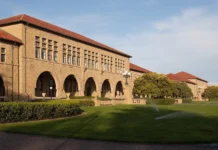As Hurricane Irma ravaged the tiny Caribbean island of St. Martin on September 6 of this year, Rabbi Moishe Chanowitz and his family took refuge in the safest place they could find—the mikvah. The storm blew off roofs and doors, destroying 95 percent of the island. After the storm passed, nine islanders lay dead, their families left to grieve. Although he was prepared for the storm, Rabbi Chanowitz was certain that the mikvah saved his family. He was also certain about the next step: “We’re going to rebuild.”
Early American Jews would have understood Rabbi Chanowitz’s words. Prior to 1825, most of them lived in the Caribbean, where natural disasters and suffering were a big part of their lives. Many had escaped the Inquisition and pogroms to come to the colonies, only to experience almost unimaginable tragedies after they arrived: devastating hurricanes, earthquakes, fires, and tsunamis, as well as pirate attacks. Those who fled to Latin America discovered that the Inquisition had followed them to the colonies.
Like Rabbi Chanowitz, early American Jews often responded to tragedies with a vow to rebuild and start anew. Also like the Chanowitzes, early American Jews recognized that their religion saved them. They gave thanks to G-d and told of their hardships in poems, on gravestones, and in autobiographies. Everyone responds to tragedy in his own way, but the harrowing tales and undying faith of early American Jews can still inspire us hundreds of years later.
The earliest stories of tragedy were told by Jews who came to the colonies from Spain or Portugal as conversos—descendants of forced converts who risked their lives to practice Judaism in secret. However, conversos who continued to practice Judaism in secret quickly found that the Spanish and Portuguese colonies were inhospitable. There were branches of the Inquisition in the colonies in Mexico, Peru, and Colombia, and they hunted Jews and other “heretics” aggressively.
Perhaps the most famous Jews to suffer from the American Inquisition were members of the Carvajal family. Despite warnings from the Inquisition, Luis de Carvajal the Younger (c. 1566-1596) had become a leader of the underground Jewish community. Although he was eventually captured, tortured, and burned to death in an auto-da-fé, Carvajal kept a record of his life in secret diaries [Figure 2]. They contained both his own story and copies of prayers, the Ten Commandments and Maimonides’ 13 Principles. Written in elegant script, each diary was only about the size of a notepad. This enabled Carvajal to hide them in his garments.
Restyling himself as Yosef Lumbroso (“Joseph the Enlightened”), Carvajal begins his story not with pain but with praise: “Saved from terrible dangers by the Lord, I, Yosef Lumbroso of the Hebrew nation and of the pilgrims to the West Indies, in appreciation of the mercies received from the hands of the Highest, address myself to all, who believe in the Holy of Holies and who hope for great mercies.”
Carvajal’s gratitude for salvation would be echoed by the greatest early American Jewish poet, Rabbi Isaac Aboab da Fonseca (1605-1693) [Figure 3]. Like Carvajal, Rabbi Aboab was the leader of an early American Jewish community. Unlike Carvajal’s community, however, Rabbi Aboab’s community didn’t need to worship in secret as they lived in Recife in northern Brazil, which was captured by the Dutch in the 1630s. Almost immediately after the Dutch took control, Recife became the flagship Jewish community in the Americas.
Most communities began with a dozen or so travelers, but in 1638 about 200 Jews traveled to Recife, primarily from Amsterdam. Religion was key for the new inhabitants. The first synagogue was functioning by 1640, as was the Talmud Torah. The synagogue’s elders—men like David Senior Coronel, Abraham de Moncado, Jacob Mucate, and Isaac Cathunho—set up a mahamad and created rules and regulations for the community based on those of the Sephardic community in Amsterdam.
Recife was named for the protective reefs along the coast, but the synagogue’s name, Zur Israel (“Rock of Israel”), was a pun on the other meaning of recife—rock. The name, however, also reflected the community’s belief that their presence in America would help bring Moshiach. “Zur Yisrael” is a phrase from the neviim that is generally seen as a prediction of Moshiach through the Davidic line (Samuel II 23:3).
The colonists were not alone in their optimism about the settlement’s significance. In his Mikveh Israel (1650), Dutch rabbi Manasseh ben Israel also argued that by establishing synagogues in England and the Americas, Jews would help fulfill the prophesy that the scattered of Israel would establish synagogues in the four corners of the earth before the messianic ingathering of the Jews occurred.
























